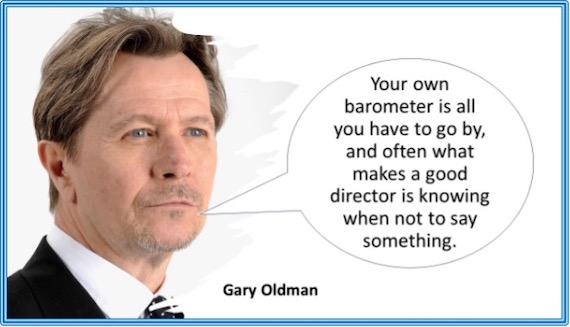|
|
|
|
|
|
|
|
|
Dear reader,
Welcome to The Director's Dilemma February 2024
Each month this newsletter looks at a real-life board scenario and considers a range of responses. The scenarios are de-identified to protect the individuals concerned. This month we advise a director who is wondering whether to remain on a board where his questions don't elicit any engagement.
Of course, scenarios in this newsletter are general, I work with boards and directors as a confidential mentor and help them beat challenges and seize opportunities. If you would like personalised service, please call me.
To read this email in a web browser, go to www.mclellan.com.au/newsletter.html and click on 'read the latest issue'. I hope you will enjoy the latest dilemma:

John joined the board of a listed company that was surviving, but not growing or reaching its targets. He had a background in a similar business and some board experience.
The CEO, who was also a Co-founder, was dismissive and defensive which made it hard for him to get good answers to his questions. The Chair, who was the other Co-founder, sympathised but preferred to preserve his relationship with the CEO rather than push for answers that might embarrass the CEO. The two other non-executive directors were very passive and looked to the Chair for guidance.
After a very unsatisfactory five months, John was elected by the shareholders at the AGM. He then watched as the shareholders vented their anger and disappointment at the poor results. After the AGM the company's brokers and a major shareholder contacted the Chair and demanded that the CEO be removed and replaced.
The CEO resigned and the Chair stepped into the role. John was relieved. He hoped that now the board would reassess their strategy and align behind a plan to deliver better results. Unfortunately, at the next board meeting, he found the Chair acted exactly as the CEO had; deflecting or dismissing questions and just wanting to report the past period's activities without any meaningful interaction or input.
Although John feels that he is letting down the shareholders who so recently voted him onto the board, he is fed up and feels his time and effort are not appreciated. He is seriously considering resignation.
What should he do?
|
|
|
|
Julia's Answer

John faces a complex dilemma, balancing legal, ethical, shareholder expectations, reputation, and potential influence. Evaluating his capacity to effect change is crucial. While his expertise might be pivotal in guiding strategic discussions, continuous resistance to his initiatives could render his role ineffective and harm his reputation, especially if the company's performance worsens.
Understanding shareholder expectations and the implications of a potential resignation in a critical company phase is essential.
Every Non-Executive Director should evaluate whether their expertise and insights are beneficial for the company's progress and potential turnaround. John's role could be crucial in directing the board towards meaningful and strategic dialogues. However, if John feels that his attempts to instigate change are consistently blocked and does not see any way to influence, even after multiple conversations to resolve the situation, his continued presence might not be effective or rewarding – even if the Shareholder believes in his potential.
Furthermore, staying in a dysfunctional board might pose a risk to John's professional reputation, especially if the company's performance continues to decline. Finally, it's essential to understand the legal and ethical implications of John's (potential) resignation, especially if the company is in a critical phase.
If John opts to remain, he should:
-
Consider candid discussions with the Chair for a collaborative approach,
-
Establish personal boundaries to navigate board dynamics,
-
Foster alliances with like-minded board members or shareholders,
-
Consult a mentor with board experience, without breaching confidentiality, to gain valuable insights,
-
Meticulously document board proceedings is advisable to address shareholder concerns or formal inquiries.
Ultimately, John's decision should resonate with his values, career aspirations, and perceived impact on the company, ensuring a choice he can confidently stand by.
Dr Julia Zdrahal-Urbanek is the Founder/Managing Partner AltoPartners Austria; co-founder and initiator of the Women Corporate Directors (WCD) Austria Chapter; and a Non-Executive Director on a large family-owned business. She has profound experience in filling board and top-management positions in Austria and Europe for global conglomerates as well as family owned and start-up/scale-up businesses.
|
|
|
|
Julie's Answer

Every director on every board should have the ability to influence the board's decisions and to enhance its understanding; if you can't do that then you are wasting your time and, potentially, taking up a board seat that could be occupied by someone who is more capable of having an impact.
If John is not getting a hearing at the board table, he should first look in the mirror; are his questions adding value? Do they help to uncover opportunities or mitigate risks? Or is he just critical? If he is the problem, he can change his behaviour or leave.
Are the other directors really passive or are they having an impact that John can't see and getting their answers outside the formal meetings? He could have a coffee with each of his colleagues and find out their opinion. He should avoid proselytising his own opinions.
If he is convinced the problem is not his, he should privately meet the chair to outline his concerns about the dismissive conduct. He needs to prepare carefully for this meeting; it will be a watershed. Ideally, he will already know the chair's communication style preferences and be able to put his case, with examples, in a way that will help the chair to understand the issues but without giving (too much) offense. Then he needs to offer a positive way forwards.
If the chair is open to making changes he should stay and help. If the chair prefers to remain on the current course, John should resign. He has given it at least six months and is clearly not going to make any progress. Hopefully, his leaving will be the catalyst for some added impetus to change.
Julie Garland McLellan is an experienced non-executive director and board advisor based in Sydney, Australia.
|
|
|
|
Alison's Answer

Dear John,
You need a lot more information before you decide to go or stay!
Here are some of the key things:
Are the targets realistic or achievable? How do they relate to the strategic plan? Is there a strategic plan? What is stopping the company from reaching the targets? Are the milestones driven by external events beyond the Company's control, eg; a change in a regulatory environment? Does the Company have good, investible assets or just a story?
Why was the Chair sympathetic to the former CEO? Why is the Chair not responding to your questions? Now he's elevated to Executive Chair, does he just want to hang on and keep the higher salary?
Are he (and the former CEO) not interested or capable of progressing the company? That's a relatively common phenomenon!
What value do the NEDs add? Do they understand the assets and the strategy? Have skin in the game? Are they just interested in board fees? Could they or should they be changed?
Why did you join the board? Was it because the shareholders wanted you to do it? That's not a good enough reason on its own.
How did the brokers think this change in CEO position would help the company? Did they want a new story for investors, but without real, substantial change?
If you go, you have concerns about;
-
letting down shareholders - don't worry. If you can't deliver value, and if the Exec Chair is not listening to you (also a big worry), by stepping down, and quickly, you'll deliver a clear message that things are unsatisfactory and bigger change is required. You should also keep your reputation.
-
your time and effort not being appreciated and that you are not making an impact – yes. Maybe you'd be better off calling it quits and putting your time and effort elsewhere where you can make a real sustained positive difference.
As the Clash song said: “If you go there will be trouble”. Perhaps that's required!
Alison Coutts is an experienced Managing and non-executive Director of Listed companies and Founder of drug development and medical device companies. She is based in Sydney Australia.
|
|
|
|
Chat GPT's Answer

John, as a non-executive director facing significant challenges within the company's board, it's crucial to navigate the situation with tact and strategic thinking. My advice is:
1. Assess the Power Dynamics: Understand the dynamics within the board and identify key influencers. Despite your frustration, maintain professionalism and avoid burning bridges.
2. Build Alliances: Cultivate relationships with other non-executive directors. Others might share your concerns but lack the assertiveness to voice them.
3. Leverage Shareholder Support: The shareholders' vote of confidence indicates a desire for change. Engage with them to understand their expectations and concerns. You can potentially rally support for constructive board reforms.
4. Effectively Communicate Concerns: Approach the Chair privately to express your concerns about the board's direction and lack of transparency. Emphasize the importance of robust governance and accountability.
5. Propose Solutions: Instead of merely highlighting problems, come prepared with constructive solutions and actionable proposals.
6. Consider External Resources: If internal efforts yield limited results, consider seeking external mediation or governance advisors
to facilitate constructive dialogue and foster a more transparent board culture.
7. Evaluate Long-term Impact: Reflect on your role within the board and assess whether your continued involvement aligns with your professional values and aspirations. While resignation may seem tempting, consider the potential consequences and explore alternatives first.
8. Stay Resilient: Board dynamics evolve over time. While change may not happen overnight, your persistence and commitment to corporate governance can gradually influence positive outcomes.
Ultimately, prioritize the company's long-term interests while also safeguarding your professional integrity and well-being. Your contributions as a non-executive director can shape the organization's trajectory and foster a culture of accountability and transparency.
Chat GPT is an artificial intelligence (or a pattern recognition, data analysis, and prediction engine). It resides in Cyberspace.
|
|
|
|
Book review - Decision Making in Uncertain Times by Tony Fish

Every board makes decisions under uncertainty; we need to, we can't wait for certainty. This book is all about decision-making in uncertain times, and regardless of how much data analysis, information, and insight is available, there is usually more than one possible outcome or direction. It is a book about dilemmas.
It will teach the reader how to understand evidence, proof, and truth and determine how data is framed as well as to understand the relationships between power, agency and influence. This should give the ability to ask better questions and get better answers.
Is it an easy read? No.
Will it leave you thinking and move you to think more? Yes!
Available at Amazon.com
Where is Julie and what is she doing? I am in Melbourne today, travelling down to beautiful Foster, looking forward to running an inhouse Writing Better Board Papers course.
This month I'm planning on releasing two new courses for you:
-
A ‘Due Diligence before Directorships' course that will cover all of my best practical tips for making a thorough investigation before placing yourself at risk by joining the board. Next course is on 12 February at 12.00 noon AEDT. You can book here: www.eventbrite.com.au/e/due-diligence-before-directorships-february-2024
-
A ‘Confidentiality and Conflicts of Interest' course that is specially designed for nominee directors and for directors on the boards of federated or subsidiary boards.
Both of these courses will be online. If you would like me to run an in-person course in your hometown, give me a call and we can get it scheduled. I am running this first through BoardPro and you can book at www.boardpro.com/managing-conflict-of-interest

Get better Board Papers - Your board's decisions are likely only as good as the papers it receives. If you are less than 100% happy with the papers that your board receives then I have just what you need: A recently updated one-day training course on Writing Better Board Papers.
New content now includes best practice on preparing papers for use with board portals, writing compelling recommendations and the process for handling questions prior to the board meeting. Book online at https://tinyurl.com/Melb20-02-24 or https://tinyurl.com/Syd06-03-24
If you would prefer an in-house course for your executive team, please call or email me, or ask your training department to contact me at julie@mclellan.com.au to find a date that suits.
Do Better Due Diligence - Ten months before Dick Smith was placed into administration, a respected and well qualified director joined the board. What questions could have been asked to alert him to the potential dangers ahead?
This course will consider legal, financial, strategic and human due diligence to ensure that you are well placed to understand the challenges and opportunities of board appointments before you sign the consent to act form. Delivered in one 90 minute online session and supported by a comprehensive training manual, this course will equip you to build the board portfolio that will satisfy your aspirations. Book at https://tinyurl.com/Zoom14-12-23
Video resources - I post short video insights on LinkedIn. They disappear after a few days. You might like to visit (and please subscribe to) my YouTube channel to see the videos whenever you want to watch them. Let me know if there are any topics you would like to see addressed.
Board review - Every board - just like every other team - needs to measure its performance if it hopes to improve. When your board next needs to conduct a performance evaluation or a governance review, please remember that I would be delighted to help. If I can help, please contact me at julie@mclellan.com.au.
Inspirational quote for February

Okay, he is an actor, and he is talking about a film director.
It's still a good quote and very true.
As an extrovert myself, I need this message.
A note on names - A few readers have asked me where I find the names for the protagonists in each case study; I 'borrow' them from people I meet or things that I read. The name John means "God has given". And our protagonist John has certainly been given a challenge!
This newsletter - If you have any ideas for improving the newsletter please let me know. If you are reading a forwarded copy, please visit my website and sign up for your own subscription.
Suggestions for dilemmas - Thank you to all the readers who have suggested dilemmas. They are greatly appreciated. I will answer them all eventually. I could not write this newsletter without your help and without the generous help of all the experts who respond each month to the case studies.
Be a contributor - if you would like to attempt a response to the dilemmas for publication you will be most welcome. Simply reply to this email and let me know. I am always on the lookout for new talent from around the world so please reach out if that sounds like something you could do. I am also always grateful for the generous sharing of the current and past contributors. I couldn't create such an engaging newsletter without their help.
Let's connect - I use LinkedIn to share information about boards and directorship with my friends and acquaintances. If you use LinkedIn and we are not yet connected I will welcome a connection from you. You can find me at linkedin.com/in/juliegarlandmclellan.
Farewell until the next issue due 1 March 2024. I look forward to greeting you again then.
Enjoy governing your companies, it is a privilege!
Best regards,
Julie

Main photo by Sora Shimazaki at Pexels.com
Quote Illustration by Julie Garland McLellan
Disclaimer: The opinions expressed above are general in nature and are designed to help you to develop your judgement as a director. They are not a definitive legal ruling and do not constitute legal advice. Names and some circumstances in the case study have been changed to ensure anonymity. Contributors to this newsletter comment in the context of their own jurisdiction; readers should check their local laws and regulations as they may be very different.
Privacy: I am privileged to have your contact details and keep them as safely as possible. I will alert you if they are ever accessed by any unauthorised person. The technical staff at ayuda help with publishing and issuing the Director's Dilemma and have access so they can send the newsletters to you. I do not sell your details to anyone; they are kept only for the intended purpose - sending you this newsletter and helping to build the judgement of company directors by providing a safe way to consider potential responses to real life events.
|
|
|
|
|
|
|









